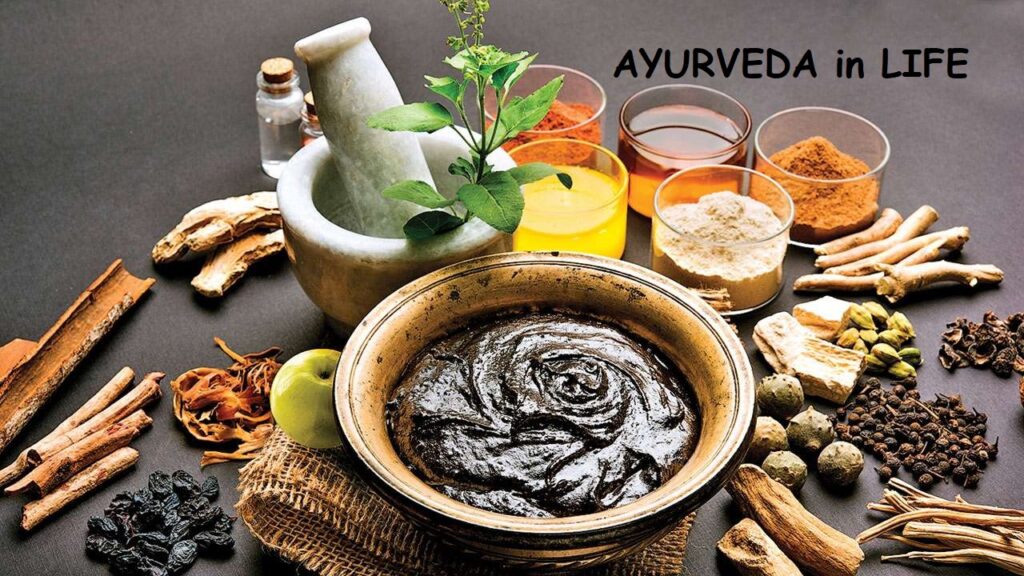“Natural treatments such as honey, saltwater, and herbs can alleviate sore throat symptoms, but if there’s no improvement, seeking medical attention or over-the-counter (OTC) remedies may be necessary.”
A sore throat typically manifests as discomfort, itchiness, or irritation, especially aggravated when swallowing, hindering food and liquid intake. While not always warranting a doctor’s visit, it remains painful and can disrupt sleep. Home remedies can provide relief from the discomfort.
The following remedies generally aid in alleviating mild or typical sore throat symptoms. However, if your sore throat is severe, worsening, or persists for several days, it’s advisable to schedule a doctor’s appointment to address your symptoms.
Home remedies for alleviating a sore throat
The remedies below can assist in relieving symptoms of a sore throat.
1-Honey
Honey, whether mixed in tea or consumed on its own, is a widely used remedy for soothing a sore throat.
According to a review of research conducted in 2021, honey demonstrates comparable effectiveness to the cough suppressant dextromethorphan in alleviating coughs among children. Dextromethorphan is a key component found in medications like Robitussin and Delsym.
Another literature review from 2021 investigated the impact of honey on acute upper respiratory tract infections. The findings indicated that honey was more efficacious in alleviating symptoms compared to other treatments, including antibiotics and the antihistamine diphenhydramine.
“Regarding honey, children under the age of 1 should avoid its consumption due to the potential risk of infant botulism.”
2-Saltwater Rinse
Rinsing with warm salt water can provide relief for a sore throat and assist in breaking down secretions, potentially reducing bacteria in the throat.
To prepare a saltwater solution, mix half a teaspoon of salt into a full glass of warm water. Gargle with this solution to alleviate swelling and maintain throat clarity.
The American Osteopathic Association recommends individuals with a sore throat perform a saltwater rinse at least once every hour.
3-Baking Soda Rinse
Though less common, gargling with a mixture of baking soda and saltwater can also alleviate sore throat discomfort. This solution aids in bacterial reduction and inhibits fungal growth.
The National Cancer Institute (NCI) suggests gargling and swishing a combination of:
1 cup warm water
1/4 teaspoon baking soda
1/8 teaspoon salt
The NCI recommends using this rinse three or four times daily, followed by rinsing the mouth with plain water.
“Fun Fact: The majority of sore throats are caused by viruses, with bacterial infections like strep throat, whooping cough, and diphtheria accounting for only a small fraction of cases.”
4-Chamomile Tea
Traditionally renowned for its soothing properties, chamomile tea has been utilized for medicinal purposes, including the treatment of sore throats, thanks to its anti-inflammatory, antioxidant, and astringent characteristics.
According to a research review from 2023, chamomile powder shows promise in alleviating inflammation in the eyes, nose, and throat.
Consuming chamomile tea may provide similar benefits, potentially bolstering the immune system to aid in combating the underlying infection causing the sore throat.
5-Peppermint
Peppermint is renowned for its breath-freshening abilities and is also recognized for its anti-inflammatory properties, as well as some antibacterial and antiviral qualities, as noted in a 2019 literature review.
Containing the compound menthol, peppermint aids in thinning mucus and soothing sore throats and coughs.
While various peppermint teas are commercially available, you can also prepare your own. Simply steep dried peppermint leaves in boiled water and allow the mixture to steep for a few minutes. Afterward, strain the tea and let it cool slightly.
Diluted peppermint oil sprays can also provide relief for sore throats. To create a spray, combine a few drops of food-grade peppermint oil with 1 ounce of plant-based oil, such as olive oil, almond oil, or softened coconut oil.
“Regarding oils When creating a peppermint oil spray, ensure you utilize peppermint oil specifically labeled as food-grade and suitable for internal consumption.
Never ingest essential oils or apply them directly to the skin without first diluting them with a plant-based oil. When employed topically, such as in aromatherapy, these plant-based oils are commonly referred to as carrier oils.”
6-Fenugreek
Fenugreek, an herb available in various forms, can be consumed as seeds, applied topically as oil, or brewed into tea, commonly used as a remedy for sore throats.
A literature review from 2018 highlights the therapeutic properties of fenugreek, which may include:
*Alleviating pain, including menstrual cramps
*Reducing bacteria responsible for irritation or inflammation
*Acting as an effective antifungal agent
*Supporting lactation
The National Center for Complementary and Integrative Health (NCCIH) advises pregnant individuals to avoid consuming large doses of fenugreek, and it’s not recommended for use as a supplement for children.
“Regarding herbal remedies
The Food and Drug Administration (FDA) does not oversee the quality or safety of herbs and supplements.
Supplements can vary from one batch to another, lacking consistency in medicinal dosages due to the absence of regulation. It’s advisable to opt for supplements certified by a third party to ensure quality and safety.”
7-Marshmallow Root
Marshmallow root, classified as an herb, contains mucilage, a substance akin to mucus that coats and calms a sore throat. A literature review from 2019 highlights its potential efficacy for soothing irritations of the respiratory tract, including sore throats.
Marshmallow root can be found in various forms:
*Herbal tea
*Tinctures
*Dried and encapsulated
It’s important to note that marshmallow products, such as those used in desserts, generally do not contain actual marshmallow root.
8-Licorice Root
Licorice root has been a traditional remedy for alleviating sore throats.
A study conducted in 2019 revealed that among various herbal infusions, licorice root tea demonstrated the most efficacy in inhibiting the growth of Streptococcus pyogenes, the bacteria responsible for strep throat.
According to the National Center for Complementary and Integrative Health (NCCIH), using licorice root lozenges or gargling with licorice root before surgery may help reduce post-surgical sore throat discomfort.
However, the NCCIH cautions that licorice root remedies may not be safe for individuals who are pregnant or nursing.
9-Slippery Elm
Similar to marshmallow root, slippery elm also contains mucilage, which forms a soothing gel when mixed with water, providing a protective coating for the throat.
To utilize slippery elm, simply pour boiling water over powdered bark, stir, and consume. Alternatively, slippery elm lozenges may also offer relief.
While slippery elm is a traditional remedy for sore throats, further research is necessary to determine its effectiveness.
It’s worth noting that slippery elm may impede the absorption of certain oral medications. To avoid potential drug interactions, it’s advisable to use slippery elm at least 1 hour after taking oral medications.
10-Garlic
Garlic possesses natural antibacterial properties and contains allicin, a compound recognized for its efficacy in combating viral infections, as indicated in a 2020 literature review on the antiviral properties of garlic.
According to a 2018 article, daily intake of garlic supplements can aid in both the prevention and treatment of upper respiratory tract infections, which may potentially lead to a sore throat.
Incorporating fresh garlic into your diet is one method of harnessing its antimicrobial benefits. Consider sucking on or chewing a garlic clove. Afterwards, it’s advisable to brush your teeth to safeguard them from enzymes and enhance your breath.
11- Cayenne Pepper or Hot Sauce
Frequently utilized for pain relief, cayenne pepper is rich in capsaicin, a natural compound renowned for its ability to inhibit pain receptors.
Though there’s anecdotal support for consuming cayenne mixed with warm water and honey to alleviate sore throat discomfort, scientific validation is lacking.
When using cayenne or hot sauce, begin with a modest sprinkle or a few drops, as both can be intensely spicy. Expect an initial burning sensation, which is typical.
Individuals with open mouth sores should refrain from using cayenne.
12-Broth or Soup
Chicken soup has long been hailed as a reliable remedy for respiratory and throat ailments. While numerous anecdotes support its efficacy, an older study provides scientific backing for its use.
In a study conducted in 2000, the effectiveness of chicken soup in reducing the migration of specific immune cells, known as neutrophils, was evaluated in a laboratory setting. The findings revealed that chicken soup inhibited the migration of these cells in a dose-dependent manner. Moreover, the study observed variations in inhibitory activity among different brands of chicken soup.
A 2020 update highlighted that chicken soup may also offer psychosocial benefits, potentially contributing to an improved mental state, which could aid in the healing process.
13- Steam or Moisture
Dry air can exacerbate throat irritation, but introducing additional moisture can provide relief. Inhaling steam, for instance, can help alleviate a sore throat.
To achieve this, pour freshly boiled water into a bowl. Cover your head with a towel and breathe normally, allowing the steam to enter through your mouth and nose. Repeat this process for 10 to 15 minutes, adding more boiled water to the bowl as needed to maintain steaminess.
Alternatively, you can create steam by running a hot shower and sealing the bathroom door. Once the bathroom becomes steamy, inhale the warm, humid air.
Using a humidifier is another option to add moisture to the air. However, a literature review from 2017 indicated that heated, humidified air administered via a humidifying device showed neither benefits nor harms in treating the common cold.
14- Rest
Taking time to rest may be exactly what your body requires. If you sense the onset of a sore throat, prioritize relaxation and ensure you’re getting adequate sleep.
The Centers for Disease Control and Prevention (CDC) highlights that sleep deprivation can heighten susceptibility to infections. Additionally, even a single night of severe sleep deprivation can elevate the levels of inflammatory proteins known as cytokines.
It’s also beneficial to give your voice a rest. Activities such as speaking loudly, singing, or shouting can exacerbate throat irritation, potentially worsening the discomfort.
In the Nutshell
In conclusion, addressing a sore throat effectively involves a combination of remedies and practices that alleviate discomfort and promote healing while avoiding factors that may exacerbate the condition. Here’s a summary of effective solutions for a sore throat and things to avoid:
- Effective Solutions:
- Stay hydrated: Drink plenty of fluids such as water, herbal teas, and broths to soothe the throat and prevent dehydration.
- Gargle with warm salt water: Salt water helps reduce inflammation and kills bacteria in the throat, providing temporary relief.
- Use throat lozenges or sprays: Menthol or eucalyptus lozenges and throat sprays can temporarily numb the throat and provide relief from pain.
- Try honey and lemon: Honey has antimicrobial properties, while lemon provides vitamin C and helps soothe the throat. Mix them in warm water or tea for relief.
- Use a humidifier: Moistening the air with a humidifier can help alleviate throat irritation caused by dry air.
- Rest and relaxation: Adequate rest allows the body to heal and recover more effectively from illness, including sore throats.
- Things to Avoid:
- Smoking and exposure to smoke: Smoking irritates the throat and can worsen soreness. Avoid smoking and exposure to secondhand smoke.
- Alcohol and caffeine: Both alcohol and caffeine can dehydrate the body, exacerbating throat discomfort. Limit consumption or avoid them altogether.
- Spicy and acidic foods: Spicy foods and acidic beverages can irritate the throat and worsen inflammation. Avoid consuming these until the throat has healed.
- Overuse of the voice: Straining the voice by speaking loudly or for prolonged periods can further irritate a sore throat. Rest the voice as much as possible.
- Cold beverages and ice cream: Cold temperatures can constrict blood vessels and increase throat discomfort. Opt for warm or room-temperature fluids instead.
By following these effective solutions and avoiding exacerbating factors, individuals can manage sore throat symptoms more effectively and promote faster recovery. However, if the sore throat persists or is accompanied by other concerning symptoms such as high fever or difficulty swallowing, it is advisable to seek medical attention for proper evaluation and treatment.







Very nice article and straight to the point.
I don’t know if this is actually the best place to ask but do you
guys have any ideea where to employ some professional writers?
Thanks 🙂 Najlepsze escape roomy
You have noted very interesting points!
ps nice site..
Everything is very open with a very clear clarification of the challenges. It was really informative. Your site is very helpful. Thanks for sharing.